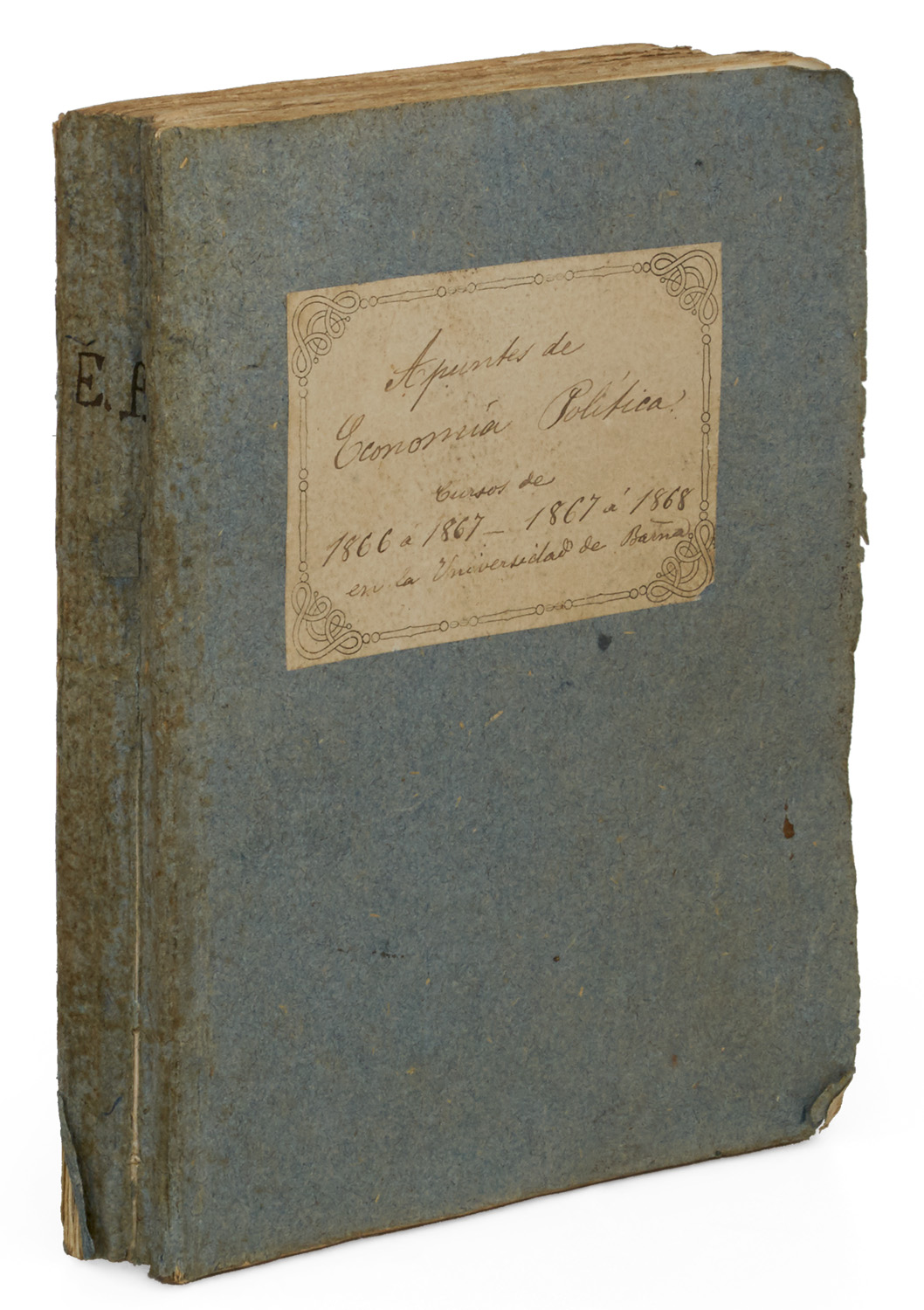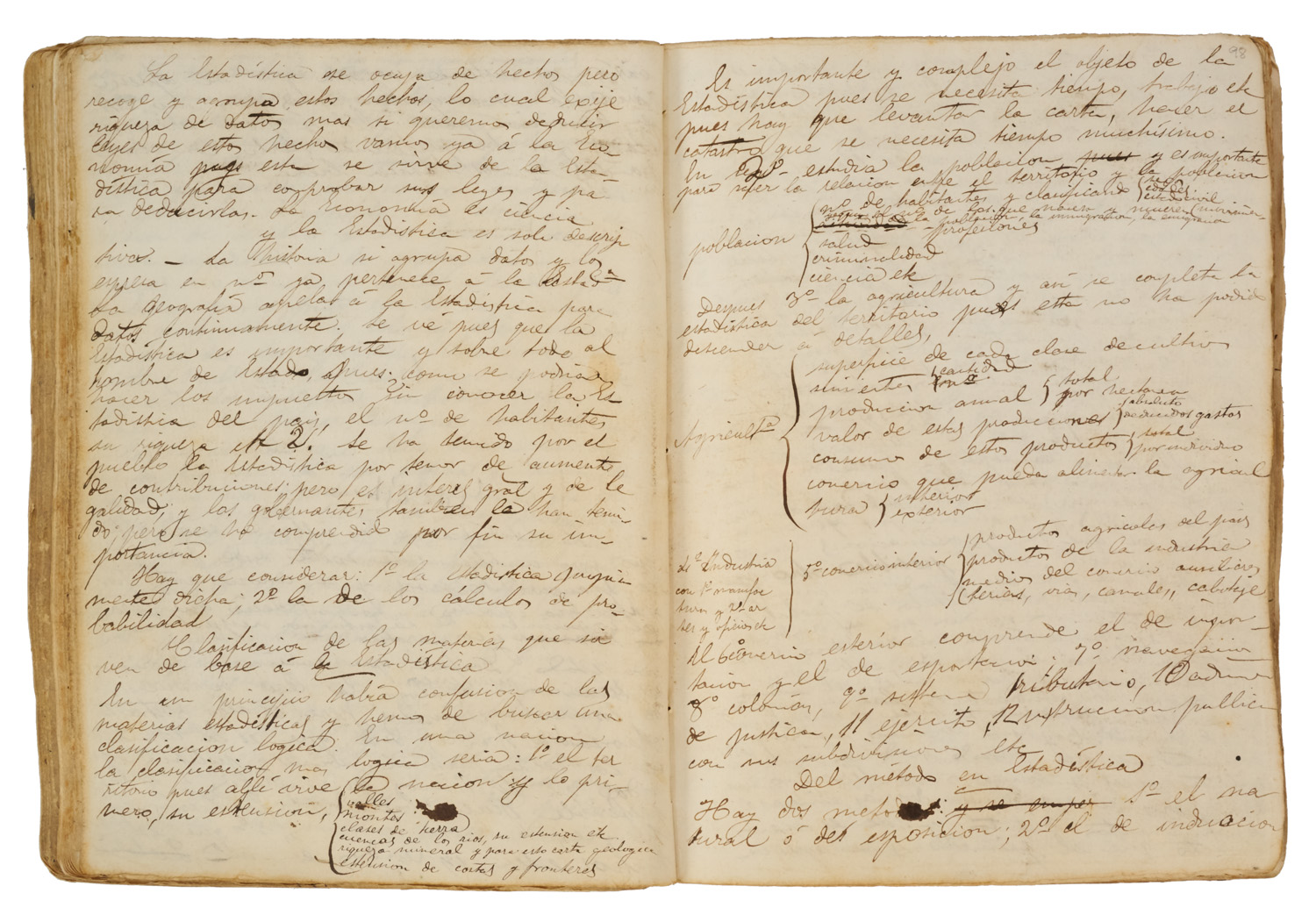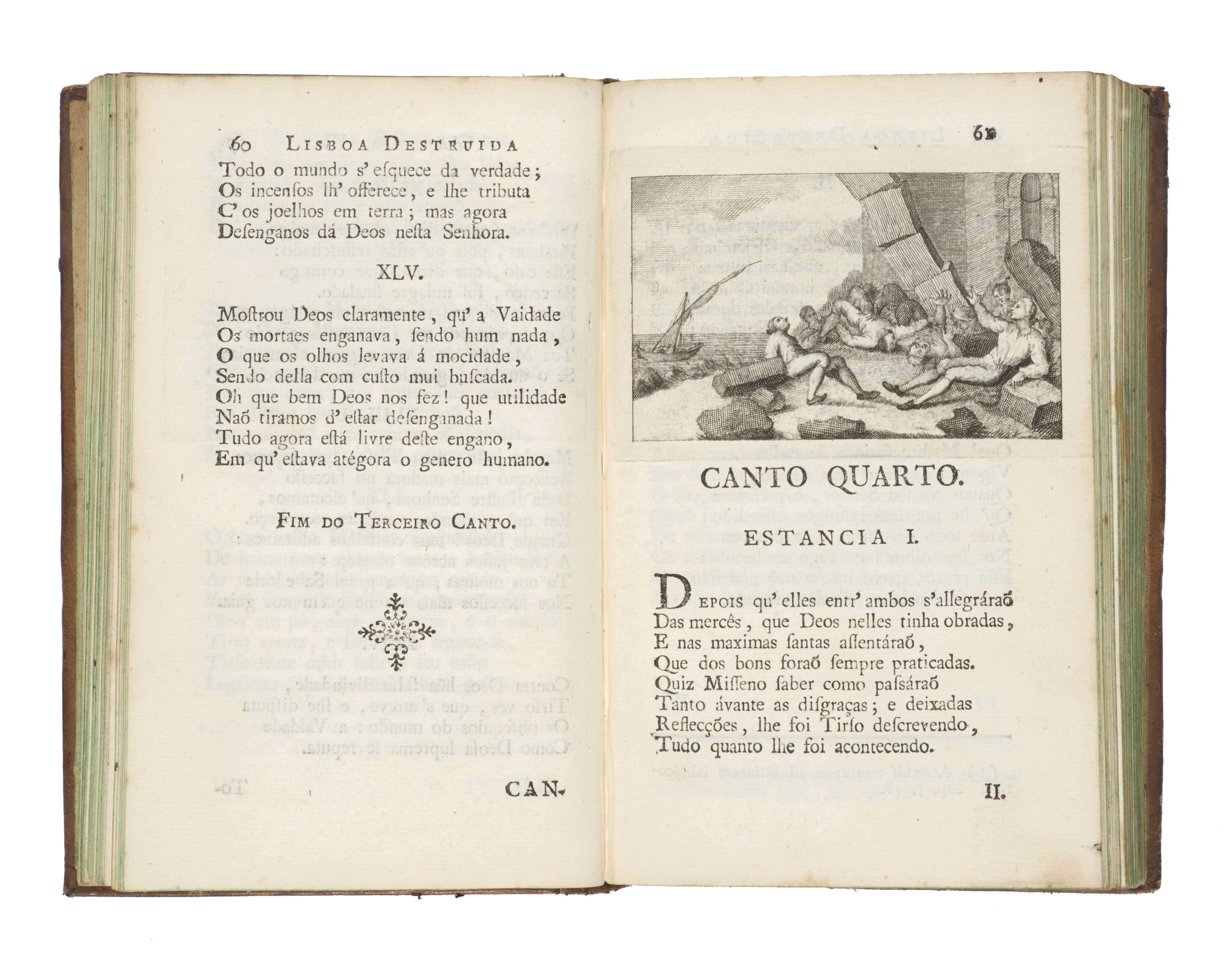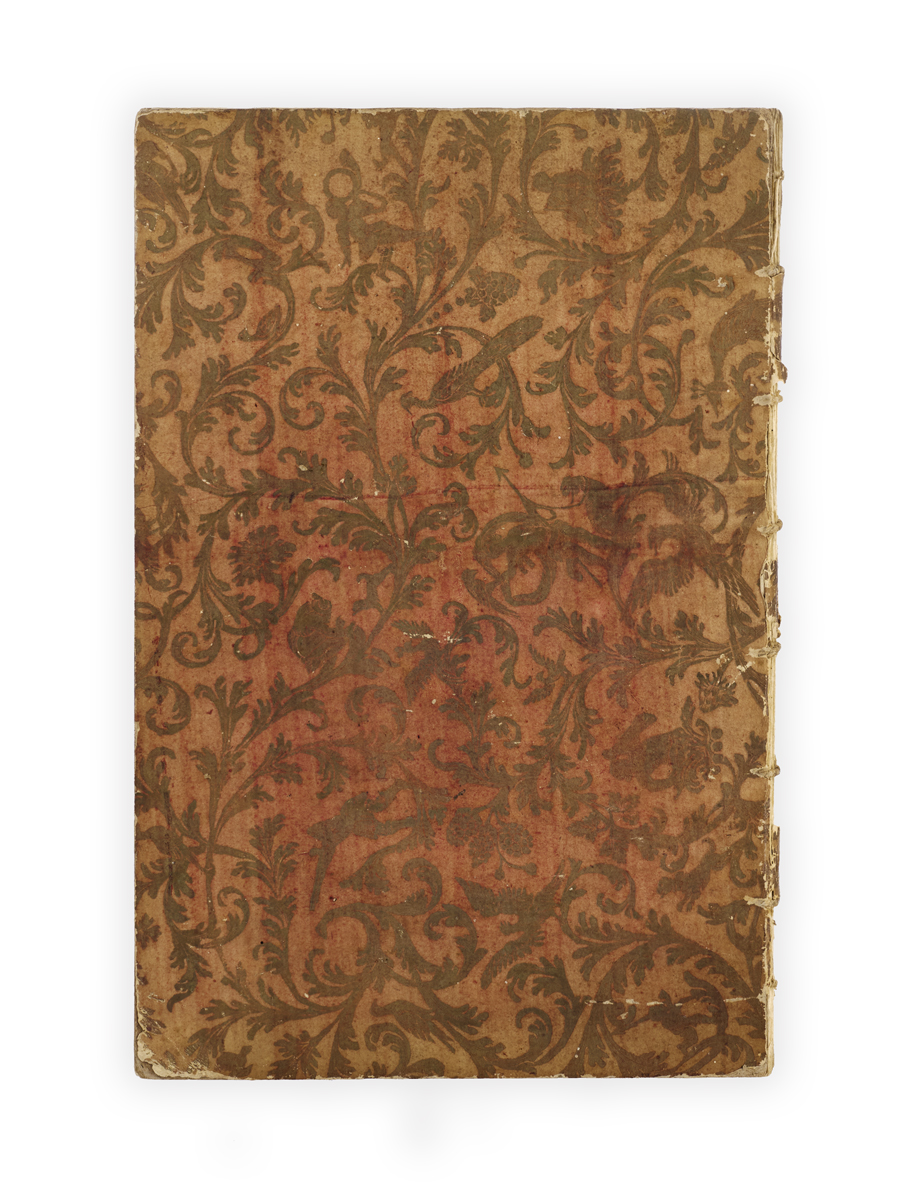

GUASP Y PUJOL, Manuel.
Apuntes de Economia Política. Cursos de 1866 a 1867 – 1867 a 1868 en la Universidad de Barcelona.
[Barcelona], 1868.
Manuscript on paper, large 8vo, ff. 215, a few quires made out of a paper of different size, entirely filled in a single hand, in brown ink, in Spanish; in contemporary blue drab wrappers, label on the upper wrapper bearing the title in ink, the initials E. P. penned on the spine; a remarkably well-preserved manuscript.

Added to your basket:
Apuntes de Economia Política. Cursos de 1866 a 1867 – 1867 a 1868 en la Universidad de Barcelona.
Unique witness to the lectures of political economy taught by Manuel Guasp y Pujol at Barcelona in the mid-1860s: a ponderous manuscript, endowed with the depth of numerous corrections and additions, amounting to an unpublished full-blown treatise on political economy, with topics such as labour, capital, theory of value and ownership at its core.
Guasp y Pujol harks back to Adam Smith as the first successful attempt to a scientific approach to economics, and points primarily to Say’s interpretation when describing production not as the product of labour but as the product of labour combined with and applied to capital. The scientific view of man in his interactions with society is a strong component in his views on the nature of economics: it is not need which act as the motor of economics, rather the freedom and the responsibility inherent in the sociable man. Needs drive work, but economics is not about work per se, it should instead be a scientific study of how work is made more fruitful: utility – a term that he sees as more useful than the Smithian ‘wealth’ - must be the basis of economics. Ricardo and Mill receive thorough treatment, as do the subjects of rent, money and credit, and the discipline of statistics. A substantial section is devoted to the history of banking, citing Scotland and England as the pioneers of a transformative innovation, and another whole section is devoted to the history of communist or socialist ideas, starting with precursors such as Thomas More, Campanella, Bodin, Rousseau. A comprehensive, appealing witness which remains, to our knowledge, unpublished.

